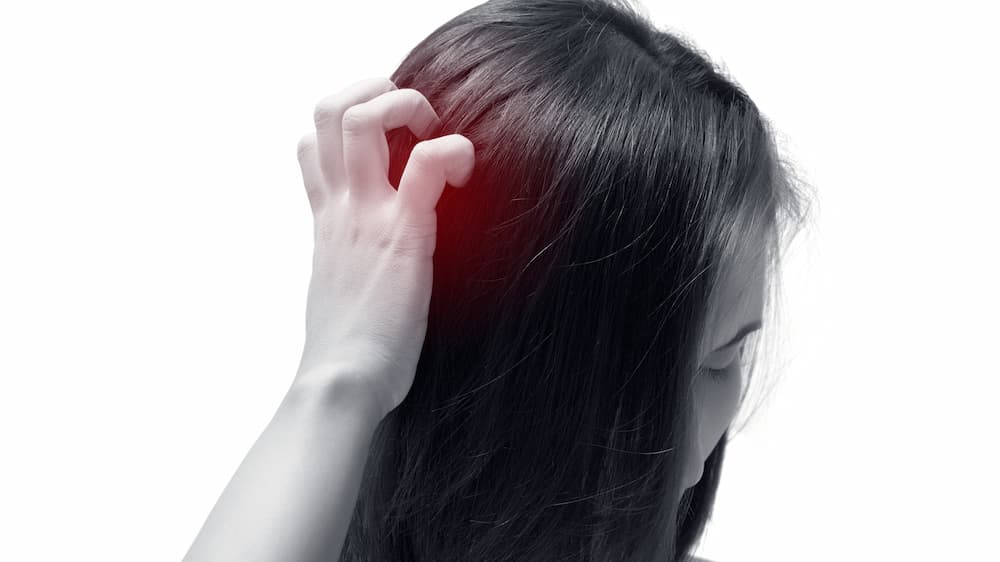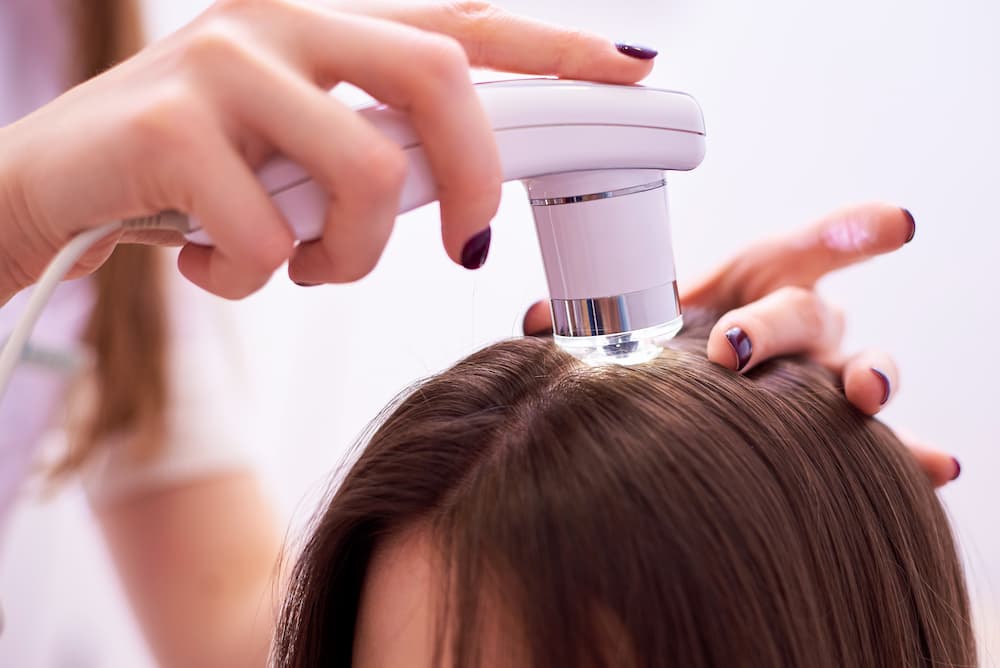
Hair and scalp pain can range from mildly annoying to constantly interfering with the quality of your life. Your hair may hurt for various reasons, and determining why your scalp is bothering you is important in finding a solution that works for you. Fortunately, you can easily manage hair pain by making simple changes to your lifestyle. TM Hair provides insight into why you may be experiencing hair pain and how we can help you prevent it!
What Can Cause Hair to Hurt?
Hair pain can come from several possible sources, and managing pain that stems from each cause can look different. Here are four of the most common reasons your hair follicles or scalp may hurt.
Sensitive Skin
Having sensitive skin can make your scalp more likely to be irritated by everyday hair care needs, such as brushing, washing, or styling your hair. These actions can cause your scalp to develop a rash or become red, flaky, swollen, or otherwise itchy or painful. You may be more likely to experience these problems if you are also prone to sensitive skin elsewhere, but it is also possible to only have significant sensitive skin on your scalp. Trying a variety of hair products can help you find an option that is a better fit for your skin, such as products that contain fewer oils, focus on natural ingredients, or are higher in aloe extract or salicylic acid. Using an appropriate shampoo and conditioner for any kind of scalp condition (dry, oily, dandruff etc.) is also necessary in creating a healthy scalp.
Styling Habits
Certain hairstyles can also be hard on your hair and scalp. Any tight hairstyle, such as cornrows, tight ponytails, or tight bobby pins, can pull on and irritate your scalp and hair follicles. Although many people can choose these hairstyles from time to time with little to no discomfort, using the same hairstyle daily can significantly increase the stress experience in the affected areas and lead to ongoing hair and scalp pain. Overdoing tight hairstyles can also damage your hair over time, even if you do not notice a problematic amount of pain. Rotating between hairstyles and not styling your hair daily can give your scalp a break and minimize the impact of occasional tight hairstyles.
Washing Too Frequently or Not Enough
Knowing how often your hair needs to be washed can also help you avoid certain types of scalp pain. Excessive greasiness and dryness can upset the natural balance of certain oils on your scalp, which means that washing your hair too often and not frequently enough can irritate your skin. Showering or washing your hair too frequently can dry out your scalp, while not doing so enough can clog your hair follicles. Because everyone’s hair is different, the amount of time most likely to cause either of these concerns can significantly vary from person to person. Using the right shampoo and conditioner formulated for your scalp type is always recommended.
Neurological Conditions
Some individuals also have a neurological condition that makes them especially prone to follicle pain. This medical condition interferes with the function of nerve endings on the scalp, which results in tingling, zapping, or shooting pain when the hair is touched. Although this condition is not very common, it can make the hair and scalp unusually sensitive, making caring for your hair or even touching it very painful.
How to Prevent Scalp Pain
Because everyone’s hair is different, eliminating scalp pain starts with locating the precise source of the pain you are experiencing. Once this source has been identified, you can begin to experiment with changes to your hair care routine that have the highest potential of solving the problem. Some of the most common ways to prevent scalp pain include reducing or eliminating hairstyles that are especially hard on your scalp, washing your hair with a more appropriate frequency, and using different shampoos, conditioners, or other hair care products that will benefit your scalp.
Persistent Scalp Pain? Let TM Hair Help
At TM Hair, we are here to help patients in Houston and the surrounding areas manage a wide range of hair and scalp concerns. We know that living with lingering scalp pain can be frustrating, especially if you have been unsuccessful in locating the source of the pain on your own. We can analyze your hair, specific symptoms, and hair care routine to provide recommendations for adjustments that may help.
Contact us today to learn more about personalizing your hair care routine to meet the unique needs of your hair and scalp or to schedule a free consultation!
Image Source: ViktoriiaNovokhatska / iced.espresso | Shutterstock


